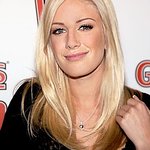Oceana has revealed the reason for the launch of the single-use jeans brand S1NGLES. Developed pro bono for Oceana by the award winning creative agency the community and launched with the support of celebrity Heidi Montag, the campaign brings to life the absurdity of single-use and why we should “refill again” in place of single-use plastic bottles.
For three days last week, Montag introduced S1NGLES on social media. Or did she? What appeared to be a (questionable) jeans launch was the kickoff to a campaign calling on leading beverage companies to commit to more refillable bottles in place of single-use plastic bottles. A report by Oceana found that just a 10% increase in refillables in all coastal countries would take as many as 7.6 billion single-use plastic bottles out of the oceans every year.
In a video, Montag disclosed that S1NGLES — single-use jeans — was a bad idea, just like single-use plastic bottles. Like single-use denim, single-use plastic bottles are flawed by design. These bottles are made of a material that can last for centuries yet are designed to be thrown out after only a single use. At the end of the video, Montag calls on viewers to join Oceana’s campaign to #RefillAgain.
Plastic pollution is killing our oceans. The equivalent of two garbage trucks worth of plastic are dumped into our oceans every minute and up to 34 billion plastic bottles become marine pollution every year. The results are devastating for ocean ecosystems and animals like sea turtles, birds, and whales.
“Single-use plastic bottles are a bad idea that we’ve gotten used to,” said Matt Littlejohn, Oceana’s Senior Vice President for Strategic Initiatives. “Our campaign was designed to show the absurdity of single-use. The time to act is now as the production of single-use plastic is set to grow by 30% in the next five years. Fortunately, in the case of soft drink companies — cited as the top polluting brands for the last three years by Break Free From Plastic — there is a proven and practical way to reduce throwaway plastic bottles by increasing the share of refillable bottles. If we want to save the oceans, we need to refill again.”
Recycling is an empty promise as only 9% of all plastic waste ever produced has been recycled. The best way to keep plastic bottles from polluting the oceans is to replace them with refillable bottles. Refillables are bottles that companies sell to customers that are then returned, washed, refilled, and sold again. Customers return these bottles because they pay a deposit that is refunded to them upon returning the bottle. The bottles, made from both polyethylene terephthalate plastic (PET) and glass, are used 20 to 50 times and are essentially all returned and collected by the companies, as opposed to single-use plastic bottles, which are used once, disposed of, and not returned to the beverage companies.
For decades until the 1970s, refillable systems were the primary way beverage companies sold billions of soft drinks around the world. Today, refillables make up nearly 23% of all Non Alcoholic Ready to Drink (NARTD) beverages sold globally, according to Oceana’s report, but have effectively been fully replaced with single-use bottles in many countries, including the United States, where the last refillable bottle was filled nearly a decade ago.
In the wake of campaigning by Oceana and its allies, the Coca-Cola Company has made a commitment to increase the share of their products sold in refillable and reusable containers to 25% of everything it sells by volume by 2030. In addition, PepsiCo recently committed to making its own reusable goal by the end of this year.
“It’s time to go back to the future,” added Littlejohn. “Well-managed refillable systems help reduce plastic pollution and the threat of climate change. We hope that Coca-Cola honors its commitment and that other beverage companies follow suit, reducing single-use plastic and increasing refillable bottles.”
Oceana is asking supporters to protect our oceans by calling on major beverage companies and bottlers to expand refillable systems in existing markets and create new major markets for refillables. Visit #RefillAgain’s website here.






